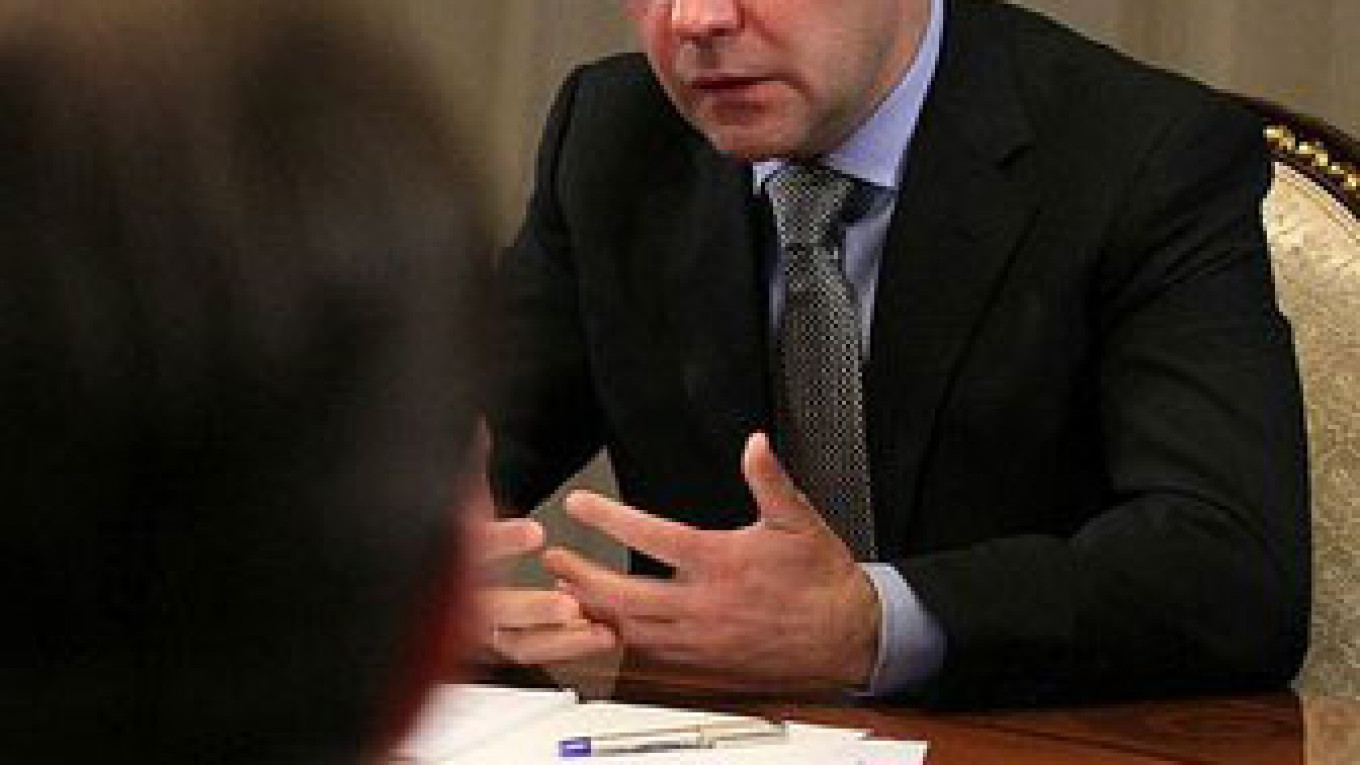"It's for voters themselves to judge who is worthy and who is not worthy of being a governor. There should not be any excess barriers here," Medvedev said Thursday at a meeting with regional leaders.
"I don't like the term 'filter.' We should not install any filters. Let people choose on their own, but understand the cost of their mistake," Medvedev said.
Putin said during a live call-in show in December that he supports the idea of retaining a kind of presidential filter for choosing candidates if direct gubernatorial elections are reinstated as Medvedev has proposed.
Medvedev said he supported an idea voiced by participants of Thursday's meeting for a primary election process to weed out untrained or ill-suited candidates, whose ranks he said could increase once more political parties are formed.
"There will be more parties, and the better half of their representatives will pour into the regions to run for governor," Medvedev said. "There is a danger that people will run who are completely unprepared — rascals, town crazies, dunces."
On Monday, Medvedev signed a bill into law easing registration requirements for political parties. The law lowers the required number of members for a party to form from 40,000 to 500.
Medvedev said Thursday that primaries would also force candidates to meet with residents and win their approval, increasing the candidates' legitimacy among voters.
Regional leaders have in recent years not always been well known to local voters, such as Mayor Sergei Sobyanin, formerly Putin's chief of staff and a governor of Tyumen, and former Kaliningrad Governor Georgy Boos, a native of Moscow.
A Message from The Moscow Times:
Dear readers,
We are facing unprecedented challenges. Russia's Prosecutor General's Office has designated The Moscow Times as an "undesirable" organization, criminalizing our work and putting our staff at risk of prosecution. This follows our earlier unjust labeling as a "foreign agent."
These actions are direct attempts to silence independent journalism in Russia. The authorities claim our work "discredits the decisions of the Russian leadership." We see things differently: we strive to provide accurate, unbiased reporting on Russia.
We, the journalists of The Moscow Times, refuse to be silenced. But to continue our work, we need your help.
Your support, no matter how small, makes a world of difference. If you can, please support us monthly starting from just $2. It's quick to set up, and every contribution makes a significant impact.
By supporting The Moscow Times, you're defending open, independent journalism in the face of repression. Thank you for standing with us.
Remind me later.






